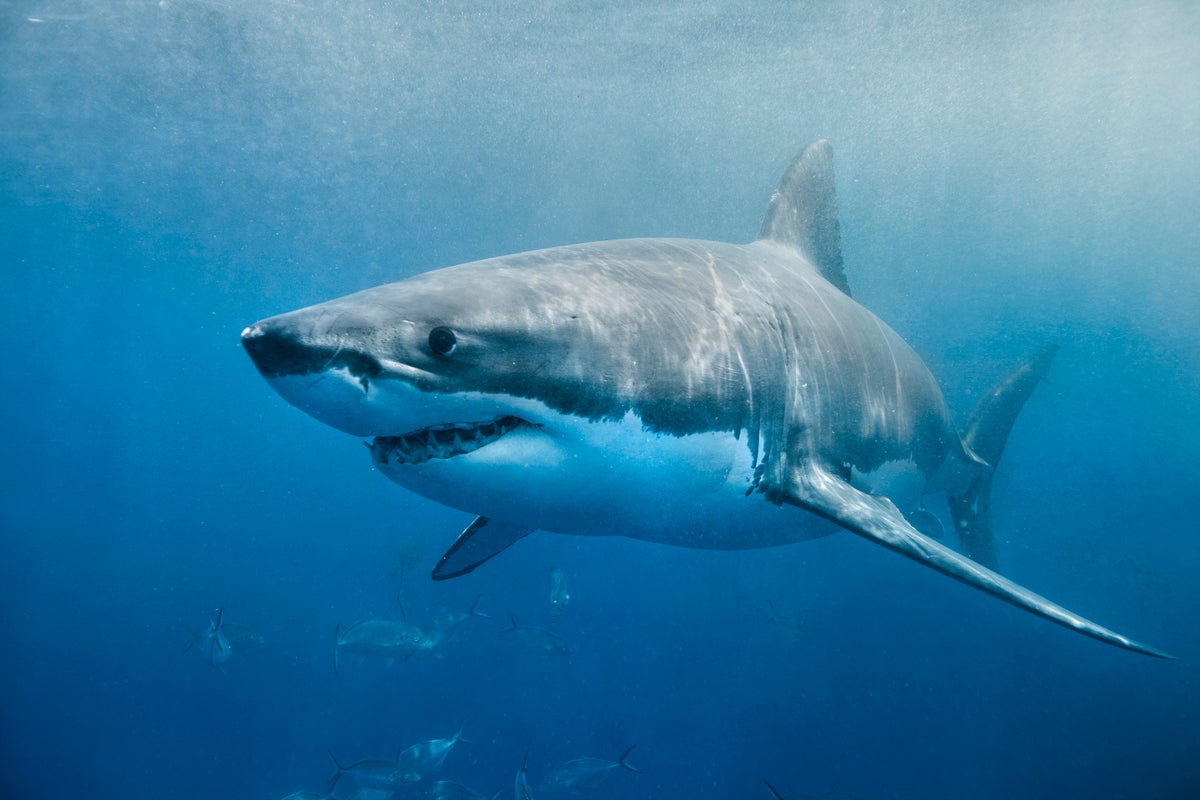
Five great white sharks have been detected in the waters off of New York and New Jersey by a nonprofit marine research organisation in the lead up to Memorial Day.
The four male and one female great whites were recorded in waters off the Eastern Seaboard in the past month by OCEARCH, which follows the sharks’ migration patterns using electronic trackers.
Penny, a 10’3” (3.1m) female juvenile weighing 522 pounds (236kg), was detected just off the New Jersey coast from Atlantic City at around 7am on Monday 29 May, according to OCEARCH’s website.
Penny had travelled 693 miles in 22 days, and was believed to be making an annual migration from the Florida Keys to waters in northeast of the US.
On 21 May, a 9’2” (2.8m) male juvenile named Frosty pinged in waters just off Rhode Island.
Four days earlier, OCEARCH detected another male juvenile Keji just off the coast of Long Island. Keji weighed almost 600 pounds (272kg) and was 9’5” (2.9m).
Jekyll, who weighs 395 pounds (180kg) and stretches 8’8” (2.7m), was seen swimming nearby on 15 May, and had travelled 1595 miles (2566kms) in 102 days, according to OCEARCH’s data.
And Simon, a 9-foot (2.7m), 434 pound (197kg) male juvenile was detected just off Fire Island on 2 May. He had journeyed 1520 miles (2446kms) in the previous 105 days.
OCEARCH captures sharks and takes biological specimens before tagging the sharks with an electronic tracker and releasing them back into the wild, according to its website.
The open-source data collected is used to assist students and institutions with studies into the shark’s migratory patterns.
Recent shark attacks in Hawaii, Florida and New Jersey have raised fears about whether it was safe to go swimming in the ocean this summer.
Two fishermen were bitten by sharks just 36 hours apart in the Florida Keys earlier this month.

Then, teenage surfer Maggie Drozdowski was bitten while in the water at the 109th Street beach in Stone Harbor last weekend.
However, experts say that attacks remain extremely rare.
In 2022, 57 unprovoked bites were reported around the world, including five fatal incidents, according to the University of Florida’s International Shark Attack File.
Reported shark attacks have declined in recent years, which experts have linked to the global reduction of shark populations.







